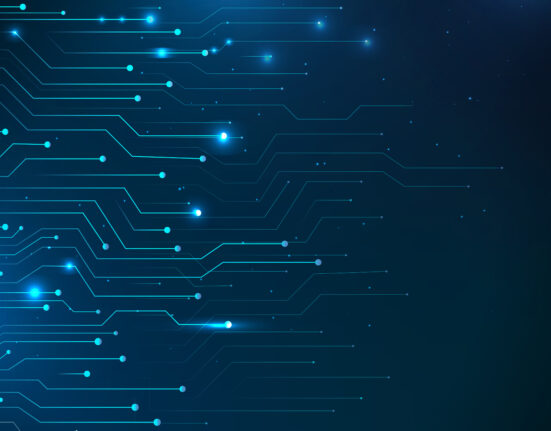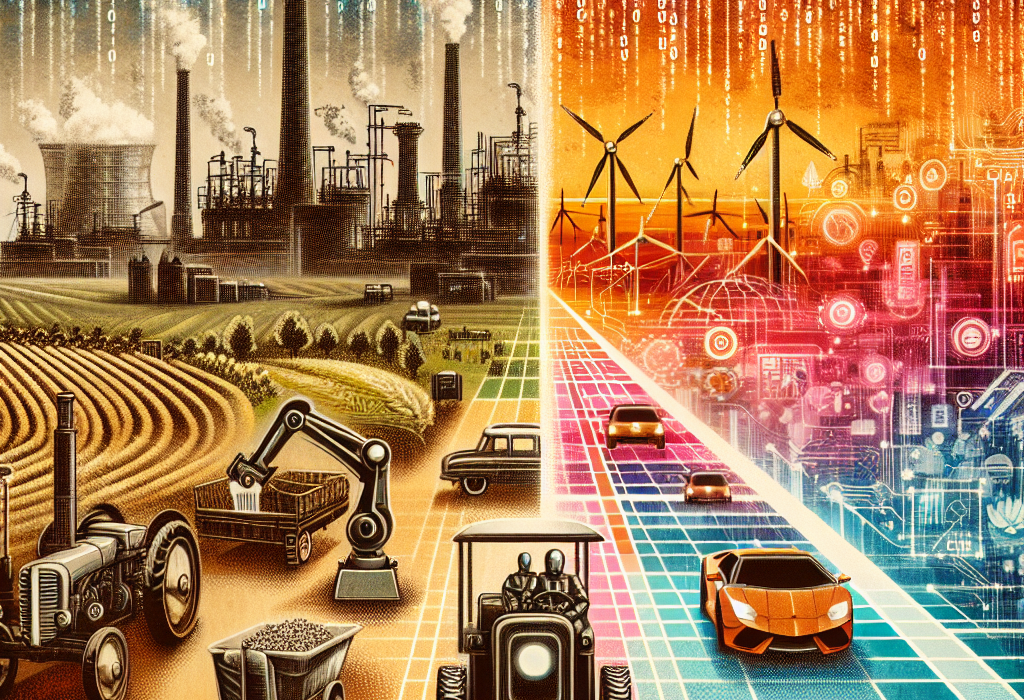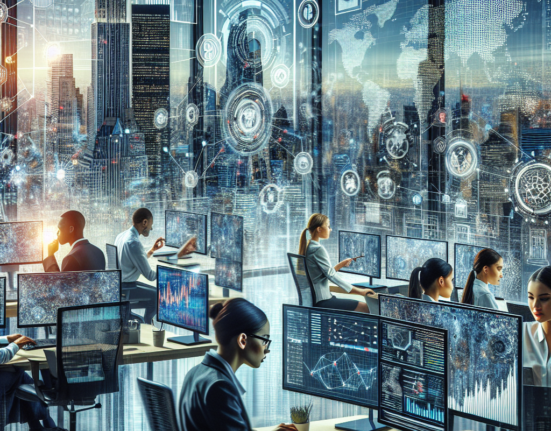The AI Revolution: How Artificial Intelligence is Reshaping Industries
The dawn of the 21st century has seen remarkable technological advances, but perhaps none as transformative as the rise of artificial intelligence (AI). What once existed purely in the realm of science fiction has become an integral part of various industries, fundamentally altering the way businesses operate, innovate, and compete.
AI in Healthcare: A New Frontier
One of the most significant impacts of AI has been in the healthcare sector. From diagnostics to treatment planning, AI’s ability to analyze vast amounts of data quickly and accurately is revolutionizing patient care. Machine learning algorithms can now detect diseases such as cancer at earlier stages than human doctors, improving patient outcomes and potentially saving lives.
Moreover, AI-powered robots are assisting in surgeries, offering unprecedented precision and reducing human error. Virtual health assistants and chatbot-based triage systems are enhancing patient interaction and easing the burden on healthcare professionals. AI-driven drug discovery is speeding up the development of new medicines, reducing costs, and bringing life-saving treatments to market more rapidly.
Transforming Finance: From Wall Street to Main Street
The financial sector has also embraced AI, utilizing the technology to bolster security, optimize trading strategies, and personalize customer experiences. Fraud detection systems powered by AI continuously learn from transaction data, identifying and mitigating threats more effectively than traditional methods.
In trading, AI-driven algorithms analyze market trends and execute trades at speeds and accuracies humans cannot match. Personal finance management apps use AI to provide tailored advice, helping users make informed decisions about saving, spending, and investing. From automated customer service to risk management, AI is streamlining operations and driving innovation in finance.
Manufacturing: The Rise of the Smart Factory
Manufacturing is another industry experiencing a seismic shift due to AI advancements. Smart factories, powered by the Internet of Things (IoT) and AI, are optimizing production processes, predicting maintenance needs, and minimizing downtime. Predictive analytics allow manufacturers to foresee equipment failures before they happen, avoiding costly interruptions.
Robotics and automation are now commonplace on production lines, enhancing efficiency and safety. AI-driven quality control systems can inspect products at a microscopic level, ensuring higher standards and reducing waste. The result is a more agile, responsive, and cost-effective manufacturing environment.
Retail: Personalization and Beyond
Retail has not been left untouched by the AI revolution. Online and brick-and-mortar retailers use AI to understand consumer behavior, manage inventory, and personalize shopping experiences. Recommendation algorithms suggest products based on user preferences and past behavior, enhancing customer satisfaction and driving sales.
Chatbots and virtual assistants provide instant customer service, answering queries, and helping shoppers find desired products. In physical stores, AI-enhanced video surveillance systems are improving security and providing insights into shopper behavior, allowing retailers to optimize store layouts and product placements.
AI in Transportation: Driving the Future
The transportation sector is on the cusp of a radical transformation driven by AI. Autonomous vehicles, once a futuristic vision, are becoming a reality. AI enables these vehicles to navigate complex environments, recognize road signs, and make split-second decisions, promising safer roads and reduced traffic congestion.
AI is also optimizing public transportation systems, predicting and managing delays, and improving route planning. Ride-sharing companies leverage AI to match supply with demand efficiently, reducing wait times and costs. The logistics industry is using AI to streamline supply chains, optimize delivery routes, and reduce shipping times.
Education: Personalized Learning Experiences
AI is reshaping education by providing personalized learning experiences tailored to individual student needs. Adaptive learning platforms use AI to analyze student performance and offer customized content, helping each learner achieve their full potential. Virtual tutors provide additional support, making education more accessible and inclusive.
AI is also enhancing administrative tasks, from grading to scheduling, freeing educators to focus on teaching rather than management. Predictive analytics can identify students at risk of falling behind, enabling timely interventions and support.
Challenges and Ethical Considerations
While the benefits of AI are profound, they come with challenges and ethical considerations. The potential for job displacement is a significant concern, as automation could render certain roles obsolete. Ensuring AI systems are fair, transparent, and free of biases is another critical issue, demanding ongoing research and regulation.
Data privacy is also a pressing concern, as AI relies on vast amounts of data to function effectively. Protecting this data from breaches and misuse is paramount to maintaining public trust and compliance with regulations.
Conclusion
The AI revolution is not just a technological shift; it’s a societal transformation. By reshaping industries from healthcare to retail, AI is driving unprecedented efficiency, innovation, and personalization. As we navigate this new era, it is crucial to address the challenges and ethical dilemmas that accompany AI’s rise, ensuring that its benefits are widely and equitably distributed.
The future of AI holds immense promise, and as the technology continues to evolve, it will undoubtedly unlock new possibilities, creating a smarter, more connected world.
















Leave feedback about this
You must be logged in to post a comment.